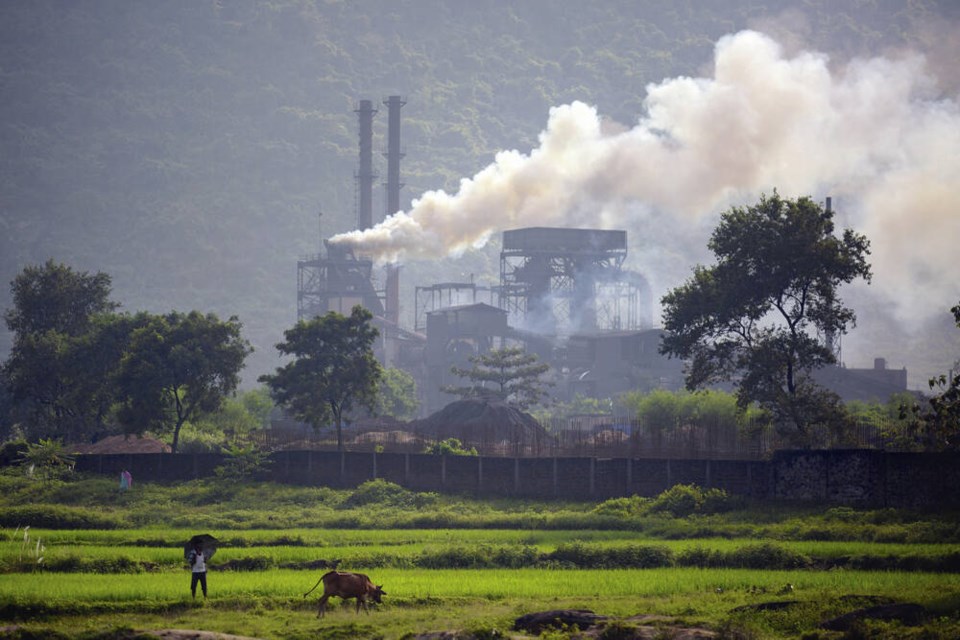I was fortunate to be born in a fairly peaceful high-income country. I had a high standard of living while growing up, with enough energy, food, water and other resources to lead a good life. I am fortunate to have never experienced war, real hunger or starvation, serious poverty or homelessness.
However, we know that this is not the case in many parts of the world. We live in a world where many lack access to even the most basic necessities of life — clean air and water, enough food that is safe and nutritious, adequate shelter, basic education and health care, not to mention those who are also caught up in war or civil strife. Small wonder, then, that there are massive inequalities in health.
Earth For All, the recent report to the Club of Rome, identified three major global equity challenges: ending poverty globally, addressing gross inequality within nations and empowering women.
To meet those challenges, the authors say, we need transformative change to create a greater equality of opportunity for everyone in the world to share in the benefits of the Earth’s bounty.
This week, I explore the solutions proposed in the report to the first equity challenge, ending poverty globally, which is rooted in inequalities in wealth and, perhaps even more important, in power between nations and people.
These inequalities are embedded in and worsened by the current world economic system. Next week, I will look at what Earth For All has to say about addressing gross inequality within countries and empowering women.
The report notes “the billion richest individuals account for 72 per cent of the overall consumption of resources, while the poorest 1.2 billion … consume only 1 per cent.”
Clearly, the poorest countries require a greater share of economic development and wealth so they can meet the basic human development needs of their people. Ending global poverty, say the authors, is feasible, but it requires low-income countries to grow their economies by five per cent annually so they can deal with both poverty and the unequal consequences of climate change they face.
But in a finite world, an increased share for low-income countries and populations requires a reduction in the excessive share taken by high-income countries and people.
A small reduction in the share taken by the richest translates into a very large increase in the wealth and consumption of the poorest people and countries. We need to recognize, as Gandhi said: “There is enough on Earth for everybody’s need but not for everyone’s greed.”
Accomplishing this, they write, requires high-income countries to “provide all possible support to low-income economies.” This will mean debt-forgiveness, low- or zero-interest loans, and support for public investment in key infrastructure, which can be financed by a combination of taxes on the rich and on corporations — although the latter will require reforming taxes globally to eliminate tax havens.
It will also mean revising the system whereby high-income countries export their dirty production — and its accompanying wastes and emissions — to low-income countries, thus benefitting from the consumption of the goods without bearing the full costs of production.
One way to accomplish this would be to legislate a Green New Deal in which transnational corporations are required to invest only in green industries in low-income countries, not in polluting industries.
This should be accompanied by technology transfer and reform of the intellectual property laws to ensure that new green technologies are rapidly available to the low-income countries that need them.
Moreover, green industries in low-income countries need protection from international competition in their start-up phase; regional trading blocks should be encouraged and protected.
Many of the problems faced by low-income countries, Earth For All shows, are rooted in multi-lateral institutions (such as the World Bank, the International Monetary Fund and the World Trade Organization), public and private-sector financing systems and transnational corporations that are set up largely to benefit high-income countries.
While ultimately we need a level playing field, for now the field needs to be tilted in the other direction for a while, to create greater equality of opportunity, wealth and power between nations so we can eliminate poverty, and all the human misery, disease and premature death that accompanies it.
Dr. Trevor Hancock is a retired professor and senior scholar at the University of Victoria’s School of Public Health and Social Policy.



